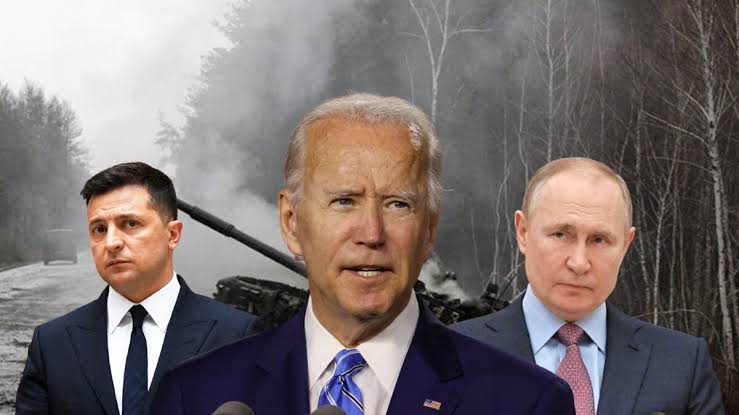Uncle Sam’s role in the Ukraine crisis

In 2014, former US secretary of state Henry Kissinger wrote in Washington Post that Ukraine should function as a bridge between the East and the West, rather than becoming “either side’s outpost against the other”. That insight was ignored by the US-led NATO, which pushed for five major eastward expansions toward Russia, thus leaving Ukraine crisis ready to explode anytime.
John Mearsheimer, the father of the theory of offensive realism in international studies, put forward that the West, especially the US, is principally responsible for disaster in Ukraine. Mearsheimer believes that if there had been no decision to move NATO eastward to include Ukraine… there would be no war in Ukraine.
US-Russia rivalry is the fundamental contributor underlining the worst geopolitical crisis in the new century. For the US, NATO expansion is designed to ensure its “absolute security”, but for Russia, it is an issue of life or death.
NATO expansion has always been a sore spot, given the Russian view that this is a Cold War institution that persists as a mode of containment, according to Igor Zevelev, a Russian political scientist at the Wilson Center.
Thomas L. Friedman, an American political commentator and author, wrote in the New York Times recently that the American choice to expand NATO in 1990s was an “ill-considered decision”. He recalled that Bill Perry, former defense secretary in the Clinton administration, in 2016 pointed out that the US should be blamed in the early years of NATO expansion since it led to a “bad direction”, making Russians feel “very uncomfortable”.
George Frost Kennan, the distinguished US architect of the strategy of containment against the Soviet Union, also expressed his frustration at NATO expansion in 1998, defining it as “the beginning of a new cold war”, predicting that Russians “will gradually react quite adversely and it will affect their policies”.
Kennan could not conceal his disappointment against this “tragic mistake”, even saying it “would make the founding fathers of this country turn over in their graves”. Unfortunately, Kennan’s prediction finally came true.
Although Russia proposed unequivocally to the US and NATO that there should be no more expansion and deployment of aggressive weapons in its neighboring countries, the US turned a deaf ear to its serious security concerns
Mearsheimer advised that the best strategy for Ukraine is to balance between Russia and the West, specifically, to “break off its close relations with the West, especially with the US, and try to accommodate the Russians”.
As former US congresswoman Tulsi Gabbard said in an interviewq, “Biden can very easily prevent a war with Russia by guaranteeing that Ukraine will not become a member of NATO.” However, people in the diplomatic establishment will never acknowledge this mistake, instead formulating a strategy to blame Russia and exploit the suffering of Ukrainian people.
Throughout this crisis, Ukraine has been a tool for the US to contain Russia. But they should never expect the US and NATO to sincerely offer any serious security guarantee.
The crisis offers a reflection of the cold-war mentality and zero-sum game pursued by the US for its own narrow geopolitical gains. The US must realize that the one playing with fire will inevitably get burned.



